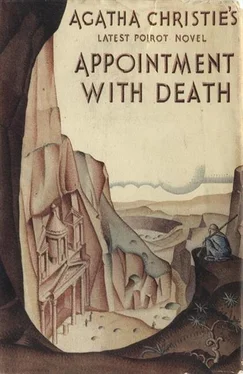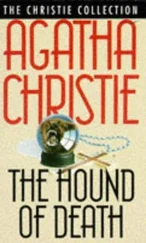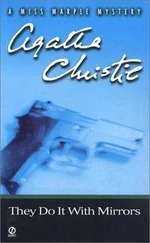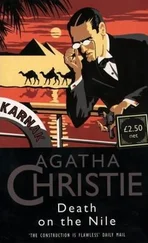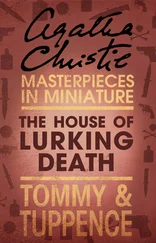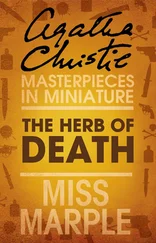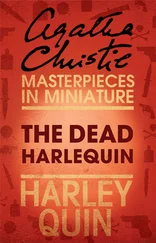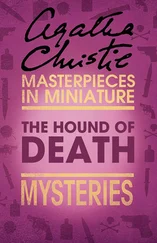Agatha Christie - Appointment with Death
Здесь есть возможность читать онлайн «Agatha Christie - Appointment with Death» весь текст электронной книги совершенно бесплатно (целиком полную версию без сокращений). В некоторых случаях можно слушать аудио, скачать через торрент в формате fb2 и присутствует краткое содержание. Год выпуска: 2007, ISBN: 2007, Издательство: Black Dog & Leventhal Publishers, Жанр: Классический детектив, на английском языке. Описание произведения, (предисловие) а так же отзывы посетителей доступны на портале библиотеки ЛибКат.
- Название:Appointment with Death
- Автор:
- Издательство:Black Dog & Leventhal Publishers
- Жанр:
- Год:2007
- ISBN:ISBN-10: 1579126928
- Рейтинг книги:4 / 5. Голосов: 1
-
Избранное:Добавить в избранное
- Отзывы:
-
Ваша оценка:
- 80
- 1
- 2
- 3
- 4
- 5
Appointment with Death: краткое содержание, описание и аннотация
Предлагаем к чтению аннотацию, описание, краткое содержание или предисловие (зависит от того, что написал сам автор книги «Appointment with Death»). Если вы не нашли необходимую информацию о книге — напишите в комментариях, мы постараемся отыскать её.
Appointment with Death — читать онлайн бесплатно полную книгу (весь текст) целиком
Ниже представлен текст книги, разбитый по страницам. Система сохранения места последней прочитанной страницы, позволяет с удобством читать онлайн бесплатно книгу «Appointment with Death», без необходимости каждый раз заново искать на чём Вы остановились. Поставьте закладку, и сможете в любой момент перейти на страницу, на которой закончили чтение.
Интервал:
Закладка:
Poirot said gently: "Heart failure is such a very loose and unscientific term."
Colonel Carbury cleared his throat. It was an official noise. He spoke in an official tone: "Best to make it quite clear. Circumstances of death reported to me. Very natural occurrence. Weather unusually hot. Journey a very trying one for an elderly lady in bad health. So far all quite clear. But Dr. Gerard came to me and volunteered a statement-" He looked inquiringly at Poirot. Poirot nodded.
"Dr. Gerard is a very eminent physician with a worldwide reputation. Any statement he makes is bound to be received with attention. Dr. Gerard's statement was as follows: On the morning after Mrs. Boynton's death, he noticed that a certain quantity of a powerful drug acting on the heart was missing from his medical supplies. On the previous afternoon he had noted the disappearance of a hypodermic syringe. Syringe was returned during the night. Final point-there was a puncture on the dead woman's wrist corresponding to the mark of a hypodermic syringe."
Colonel Carbury paused. "In these circumstances I considered that it was the duty of those in authority to inquire into the matter. M. Hercule Poirot was my guest and very considerately offered his highly specialized services. I gave him full authority to make any investigations he pleased. We are assembled here now to hear his report on the matter."
There was silence. A silence so acute that you could have heard-as the saying is-a pin drop. Actually, somebody in the next room did drop what was probably a shoe. It sounded like a bomb in the hushed atmosphere.
Poirot cast a quick glance at the little group of three people on his right, then turned his gaze to the five people huddled together on his left-a group of people with frightened eyes.
Poirot said quietly: "When Colonel Carbury mentioned this business to me, I gave him my opinion as an expert. I told him that it might not be possible to bring proof-such proof as would be admissible in a court of law-but I told him very definitely that I was sure I could arrive at the truth simply by questioning the people concerned. For let me tell you this, my friends, to investigate a crime it is only necessary to let the guilty party or parties talk. Always, in the end, they tell you what you want to know!"
He paused. "So, in this case, although you have lied to me, you have also, unwittingly, told me the truth."
He heard a faint sigh, the scrape of a chair on the floor to his right, but he did not look around. He continued to look at the Boyntons.
"First, I examined the possibility of Mrs. Boynton's having died a natural death-and I decided against it. The missing drug, the hypodermic syringe, and above all, the attitude of the dead lady's family all convinced me that that supposition could not be entertained. Not only was Mrs. Boynton killed in cold blood-but every member of her family was aware of the fact! Collectively they reacted as guilty parties."
"But there are degrees in guilt. I examined the evidence carefully with a view to ascertaining whether the murder-yes, it was murder!-had been committed by the old lady's family acting on a concerted plan. There was, I may say, overwhelming motive. One and all stood to gain by her death-both in the financial sense-for they would at once attain financial independence and indeed enjoy very considerable wealth-and also in the sense of being freed from what had become an almost insupportable tyranny."
"To continue: I decided, almost immediately, that the concerted theory would not hold water. The stories of the Boynton family did not dovetail neatly into each other and no system of workable alibis had been arranged. The facts seemed more to suggest that one-or possibly two members of the family had acted in collusion and that the others were accessories after the fact."
"I next considered which particular member or members were indicated. Here, I may say, I was inclined to be biased by a certain piece of evidence known only to myself."
Here Poirot recounted his experience in Jerusalem.
"Naturally, that pointed very strongly to M. Raymond Boynton as the prime mover in the affair. Studying the family I came to the conclusion that the most likely recipient of his confidences that night would be his sister Carol. They strongly resembled each other in appearance and temperament, and so would have a keen bond of sympathy and they also possessed the nervous rebellious temperament necessary for the conception of such an act. That their motives were partly unselfish-to free the whole family and particularly their younger sister-only made the planning of the deed more plausible."
Poirot paused a minute.
Raymond Boynton half opened his lips, then shut them again. His eyes looked steadily at Poirot with a kind of dumb agony in them.
"Before I go into the case against Raymond Boynton, I would like to read to you a list of significant points which I drew up and submitted to Colonel Carbury this afternoon:
SIGNIFICANT POINTS
1. Mrs. Boynton was taking a mixture containing digitalis.
2. Dr. Gerard missed a hypodermic syringe.
3. Mrs. Boynton took definite pleasure in keeping her family from enjoying themselves with other people.
4. Mrs. Boynton, on the afternoon in question, encouraged her family to go away and leave her.
5. Mrs. Boynton was a mental sadist.
6. The distance from the marquee to the place where Mrs. Boynton was sitting is (roughly) two hundred yards.
7. M. Lennox Boynton said at first he did not know what time he returned to the camp, but later he admitted having set his mother's wristwatch to the right time.
8. Dr. Gerard and Miss Ginevra Boynton occupied tents next door to each other.
9. At half-past six, when dinner was ready, a servant was dispatched to announce the fact to Mrs. Boynton.
10. Mrs. Boynton, in Jerusalem, used these words: 'I never forget. Remember that. I've never forgotten anything.'
Although I have numbered the points separately, occasionally they can be bracketed in pairs. That is the case, for instance, with the first two. Mrs. Boynton was taking a mixture containing digitalis. Dr. Gerard had missed a hypodermic syringe. Those two points were the first thing that struck me about the case, and I may say to you that I found them most extraordinary-and quite irreconcilable. You do not see what I mean? No matter. I will return to the point presently. Let it suffice that I noted those two points as something that had definitely got to be explained satisfactorily."
"I will conclude now with my study of the possibility of Raymond Boynton's guilt. The following are the facts: He had been heard to discuss the possibility of taking Mrs. Boynton's life. He was in a condition of great nervous excitement. He had-Mademoiselle will forgive me-"he bowed apologetically to Sarah-"just passed through a moment of great emotional crisis. That is, he had fallen in love. The exaltation of his feelings might lead him to act in one of several ways. He might feel mellowed and softened towards the world in general, including his stepmother, he might feel the courage at last to defy her and shake off her influence or he might find just the additional spur to turn his crime from theory to practice. That is the psychology! Let us now examine the facts."
"Raymond Boynton left the camp with the others about three-fifteen. Mrs. Boynton was then alive and well. Before long Raymond and Sarah King had a tкte-а-tкte interview. Then he left her. According to him, he returned to the camp at ten minutes to six. He went up to his mother, exchanged a few words with her, then went to his tent and afterwards down to the marquee. He says that at ten minutes to six Mrs. Boynton was alive and well."
Читать дальшеИнтервал:
Закладка:
Похожие книги на «Appointment with Death»
Представляем Вашему вниманию похожие книги на «Appointment with Death» списком для выбора. Мы отобрали схожую по названию и смыслу литературу в надежде предоставить читателям больше вариантов отыскать новые, интересные, ещё непрочитанные произведения.
Обсуждение, отзывы о книге «Appointment with Death» и просто собственные мнения читателей. Оставьте ваши комментарии, напишите, что Вы думаете о произведении, его смысле или главных героях. Укажите что конкретно понравилось, а что нет, и почему Вы так считаете.
